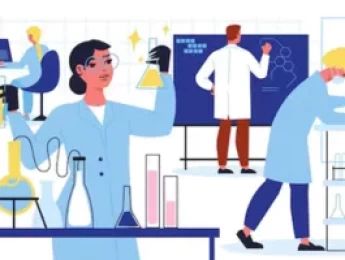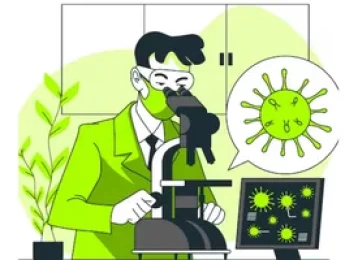Biotechnology is the use of biological systems to create products and systems that improve various areas of society. Although it has existed for thousands of years, its capabilities have only been truly tested in modern times.
It is important to understand the progression of biotechnology to appreciate the research and scientific discoveries that have contributed to its success and how these have influenced modern-day biotechnologies. The development pattern makes it clear how biotechnology has spread to other industries and led to significant improvement in various processes.
Due to the nature of biotechnology, there are also a significant number of national and international laws, regulations, and standards an organisation must follow. These establish guidance on how to design biotechnology facilities safely and effectively and discuss how they should be maintained throughout their lifetime.
Upon completion of this course, participants will be able to:
- Understand the importance of productive biotechnology across different industries, including healthcare.
- Describe the common biological products used within biotechnology and its manufacturing process.
- Investigate and ensure compliance with all legal regulations and standards.
- Explore the history of biotechnology and how its demand has evolved over time.
- Assess various facility designs and how they effectively serve their purpose.
- Evaluate the regulatory foundation that makes biological products different to traditional pharmaceutical products.
- Explore emerging technologies and how they may influence existing and future biotechnology.
This course is designed for anyone who wishes to enter a career in biotechnology or those within the career who wish to refresh their knowledge. It would be most beneficial for:
- Biotechnology Engineers
- Pharmaceutical Directors
- Laboratory Research Scientists
- HR Personnel
- Biotechnology Facilities Managers
- Biotechnology Manufacturers
- HSE Officers
- Compliance Officers
This course uses a variety of adult learning styles to aid full understanding and comprehension. Participants will review case studies of organisations that use biotechnology to highlight their purpose, specific developments, and how it has led to success.
They will be provided with all the necessary tools and equipment to participate in the variety of learning exercises offered. This combination of seminars, video materials, demonstrations, and group activities guarantees that the participants can develop a strong understanding of the taught content and practise all related physical skills.
Day 5 of each course is reserved for a Q&A session, which may occur off-site. For 10-day courses, this also applies to day 10
Section 1: Fundamentals of Biotechnology
- Defining what biotechnology is and its rising necessity within various industries.
- The different subdisciplines of biotechnology and how they are categorised – red, white, green, gold, blue and more.
- Identifying what industries primarily use biotechnology and how this has improved their practices.
- Exploring the advantages of biotechnology and acknowledging the potential harm.
- Are the benefits of biotechnology worth the risk?
Section 2: Regulations and Standards
- Assessing what national and international laws regulate and setting the standards for developing and managing biotechnology.
- Investigating the application of international trade laws and international protection of the environment.
- The implication of human rights throughout the biotechnology process.
- Ensuring biotechnologies and products align with Good Manufacturing Practices (GMPs).
Section 3: The Development of Biotechnology
- Evaluating the history of biotechnology and how it has significantly developed over time.
- Assessing the rapid development of biotechnology beginning with the development of genetic engineering in 1973.
- How biotechnology spread from the agricultural sector to healthcare, environment, and industry.
- Exploring new biotechnology developments and predicting how these may be used in the future.
Section 4: Designing Biotechnology Facilities
- Identifying key stages in the biotechnology facilities design process and their importance.
- Assessing the ultimate goals for the facility and what biotechnologies will be used.
- Quantifying the desired space and categorising areas based on the requirements of the desired equipment.
- Ensuring a safe flow of people – all pathways are clearly identified and clear of any obstructions.
- All potentially harmful materials should be stored securely and separated from reactive materials.
Section 5: Biotechnology in Practice
- Describe the current trends in biotechnology and potential future trends.
- Investigating the specific use of biotechnology throughout different sectors.
- Agriculture – drought-resistant crops, lab-grown meat, selective breeding and more.
- Medicine – stem cell research, antibiotic development, gene therapies and more.
- Environment/Conversation – Bioremediation, plastic-eating bacteria, and genetic restoration.
Upon successful completion of this training course, delegates will be awarded a Holistique Training Certificate of Completion. For those who attend and complete the online training course, a Holistique Training e-Certificate will be provided.
Holistique Training Certificates are accredited by the British Assessment Council (BAC) and The CPD Certification Service (CPD), and are certified under ISO 9001, ISO 21001, and ISO 29993 standards.
CPD credits for this course are granted by our Certificates and will be reflected on the Holistique Training Certificate of Completion. In accordance with the standards of The CPD Certification Service, one CPD credit is awarded per hour of course attendance. A maximum of 50 CPD credits can be claimed for any single course we currently offer.
- Course Code IND05-112
- Course Format Classroom, Online,
- Duration 5 days













